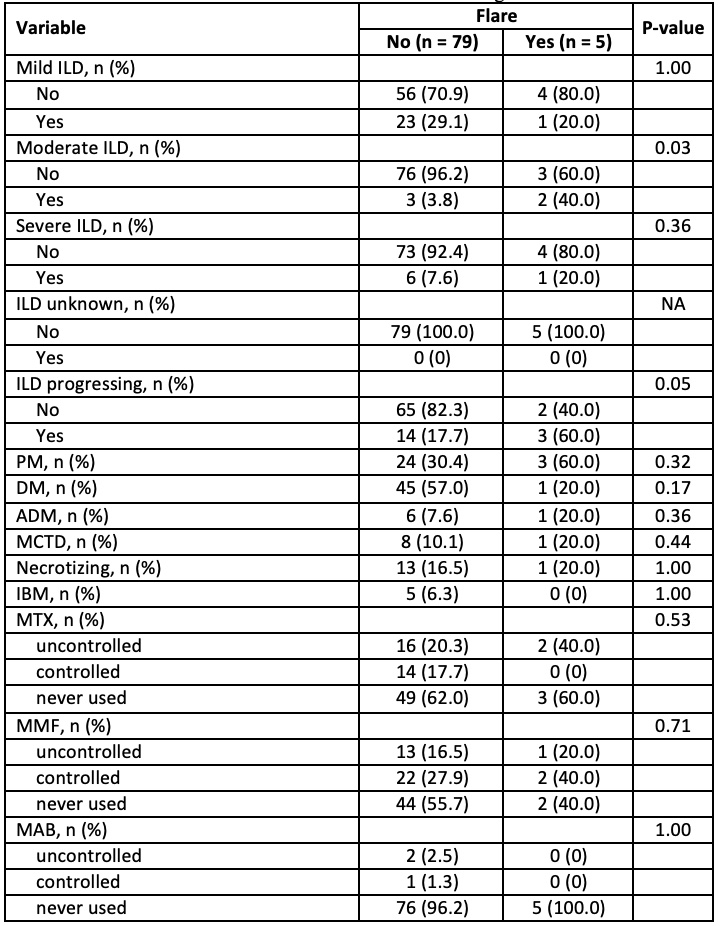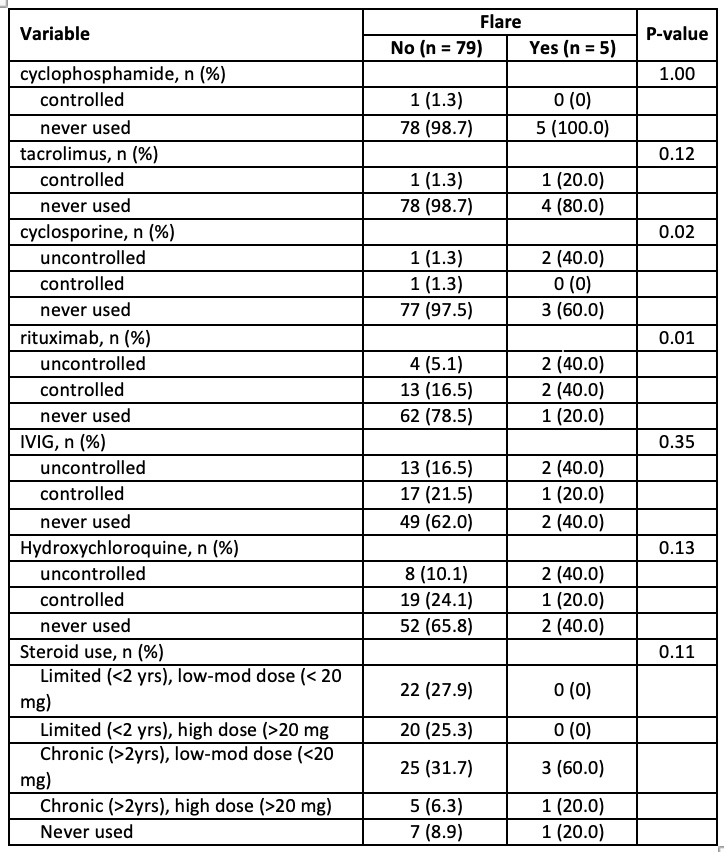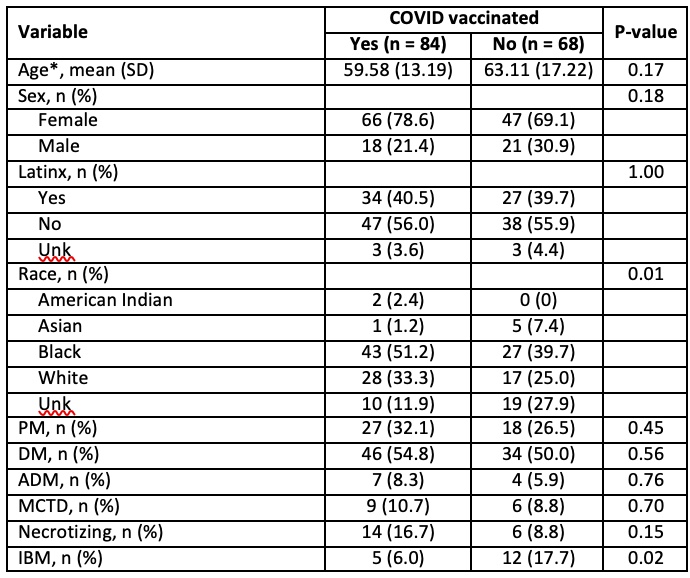Session Information
Date: Sunday, November 12, 2023
Title: (0283–0307) Muscle Biology, Myositis & Myopathies – Basic & Clinical Science Poster I
Session Type: Poster Session A
Session Time: 9:00AM-11:00AM
Background/Purpose: Autoimmune activation in the setting of vaccination against coronavirus disease 2019 (COVID-19) is a well-documented phenomenon in the medical literature. For patients with idiopathic inflammatory myopathies (IIM), there is a concern that vaccinations can cause disease flares. Data regarding this topic in this heterogenous patient population remains sparse. Our aim was to evaluate the incidence of myositis flares in IIM patients following vaccination against COVID-19 in a minority majority cohort.
Methods: Patients from Montefiore Medical Center who met 2017 EULAR/ACR classification criteria for IIM were included in this retrospective cohort study. 152 patient records from the year 2020 onwards were searched for dates of COVID-19 vaccinations and incidence of disease flares, defined as myalgias with elevations in creatine kinase over two times the upper limit of normal within 3 months of vaccination. A bivariate analysis was done in those who were vaccinated to determine possible covariates associated with disease flares, including IIM subtypes, the presence and severity of interstitial lung disease (ILD), and concurrent immunosuppressive therapy.
Results: Of the 152 IIM patients included in this cohort study, 84 (55%) were vaccinated against COVID-19. Of the 84 vaccinated patients, 5 (6%) experienced a disease flare. All flares occurred after the primary vaccine series of either Pfizer (n= 3/5, 60%) or Moderna vaccines (n= 2/5, 40%). There were no statistically significant increases in disease flare incidence in patients with Polymyositis, Dermatomyositis, Amyopathic Dermatomyositis, Mixed or Undifferentiated Connective Tissue Disease, Necrotizing myopathies, or Inclusion Body Myositis. However, there were statistically significant increases in the incidence of disease flares in patients with moderate ILD (p=0.03) and progressive ILD (p=0.05). There were also statistically significant differences noted in the incidence of disease flares in patients taking Rituximab (p= 0.01) and Cyclosporine (p=0.02), while there were no similar trends observed for those on other immunosuppressive agents or those on acute or chronic steroids, as seen in Table 1.
Conclusion: There were no statistically significant increases in disease activity for IIM patients after COVID-19 vaccination. However, disease flare incidence was increased in IIM patients with moderate or progressive ILD, as well as those taking Rituximab and cyclosporine. More research is needed to further investigate the link between ILD and vaccination-related disease flares. In the meantime, providers should remain vigilant in monitoring for disease activity after COVID-19 vaccination in IIM patients with ILD and those on immunosuppressive agents.
To cite this abstract in AMA style:
Weisleder H, Valle A, Xie X, Mahmood S. Incidence of Disease Flares Following COVID-19 Vaccination in a Diverse Idiopathic Inflammatory Myopathy Cohort [abstract]. Arthritis Rheumatol. 2023; 75 (suppl 9). https://acrabstracts.org/abstract/incidence-of-disease-flares-following-covid-19-vaccination-in-a-diverse-idiopathic-inflammatory-myopathy-cohort/. Accessed .« Back to ACR Convergence 2023
ACR Meeting Abstracts - https://acrabstracts.org/abstract/incidence-of-disease-flares-following-covid-19-vaccination-in-a-diverse-idiopathic-inflammatory-myopathy-cohort/



